Description
ABSTRACT
The Right to Industrial Action in Nigeria: A Comparative Review of International Labour Standards
Prince Ikwuade Azubuike*
The right of employees to embark on industrial actions notably, to strike, is arguably next in importance to the right to life. The right to strike influences the balance of relations, not only between employers and employees and their organisations in the various sectors of the economy but also the capacity of the civil society, which includes trade unions, in acting as a counter power to likely excesses that the state may display in the governance process. Thus, the right to strike determines not just the prospects for enjoying improvements in working and living conditions of employees but it is also a precondition for the sustenance of society on a just and democratic basis and enjoyment of other fundamental socioeconomic and political rights. Despite the strategic nexus between the right to strike and the attainment of a just society, the right to strike tends to be restricted in labour laws and practically suppressed in the course of actual strike actions in Nigeria. This paper examines not only the exercise of the right to strike in Nigeria within the ambits of the principles established by the International Labour Organization (ILO) but it also undertakes a critical appraisal of the ILO principles in the light of the operating neoliberal policy framework in Nigeria.
Keywords: Industrial actions, Strike, Employers, Employees, Trade unions Labour law, International Labour Organization.
INTRODUCTION
The right to strike is a universal democratic right of all employees, regardless of where they are employed: private or public sector. Depending on the degree of realisation of this right in a state, it is accordingly evaluated on the scale of democracy. Therefore, we can say that the right to strike is a fundamental measure of democratic values of a society. There is no real democracy without the right to strike. The right to strike is governed by international legal instruments (Conventions) of the United Nations, the International Labour Organisation and other regional bodies like the European Union, African Union etc. The right to strike is a keystone of modern industrial society. No society which lacks that right can be democratic. Any society which seeks to become democratic must secure that right.1
The question as to whether employees have a fundamental right to strike has been the object of considerable academic debate and is a point on which judicial opinions have continually been expressed. There is no doubt that workers throughout the world are alike in the sense that they desire recognition, satisfaction, fair wages and salaries, job security, redress of wrongs and good working conditions. But often the employer and the union (representing workers) find themselves in sharp disagreement. Such friction or disagreement gives rise to trade disputes and strikes.2
* B.Sc., LL.B, LL.M, BL. Ph.D. Candidate at Nnamdi Azikiwe University, Awka, Nigeria. The author divides his research interest in International Law with a bias for Constitutional Law, Commercial Arbitration and Oil and Gas Law. The author is grateful to the anonymous reviewers for their comments and contributions to the earlier draft of this article.
- L. MacFarlane, The Right to Strike. (Penguin Books 1981) 12; ‘Strike or Lockout is Unlawful in Nigeria’ (2015) 6(1) The Gravitas Review of Business and Property Law 1; Abugu, J.E.O, ‘Nearly Always, A Strike or Lockout is Unlawful in Nigeria’ (2015) 6(1) The Gravitas Review of Business and Property Law 1.
- OVC Okene, ‘The Status of the Right to Strike in Nigeria: A Perspective from International and Comparative Law’ (2007) 4 African Journal of International and Comparative Law 28.

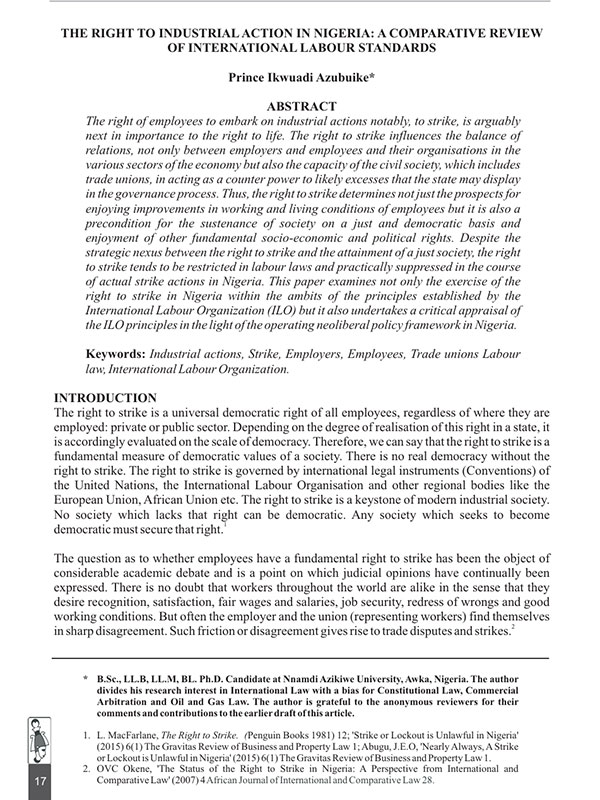
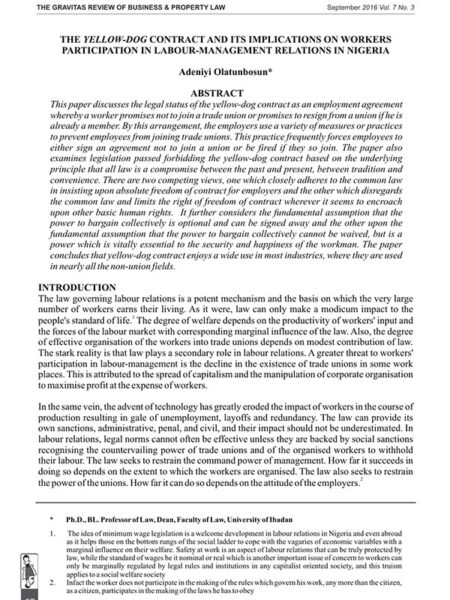
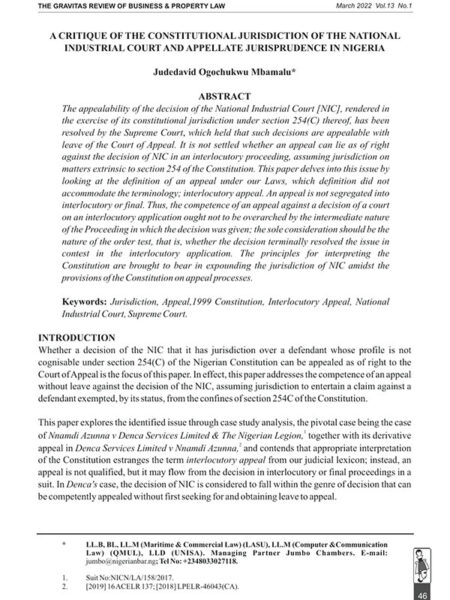
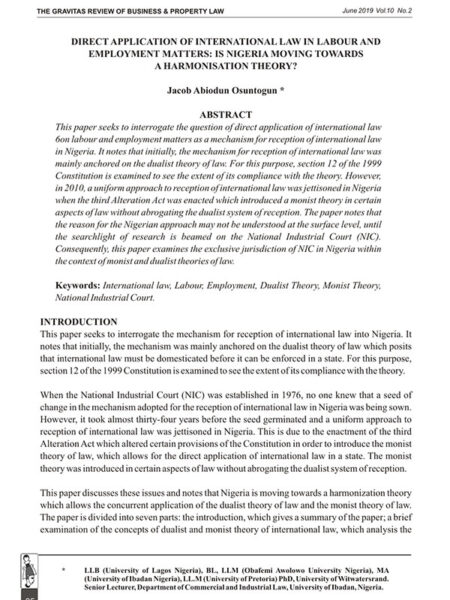
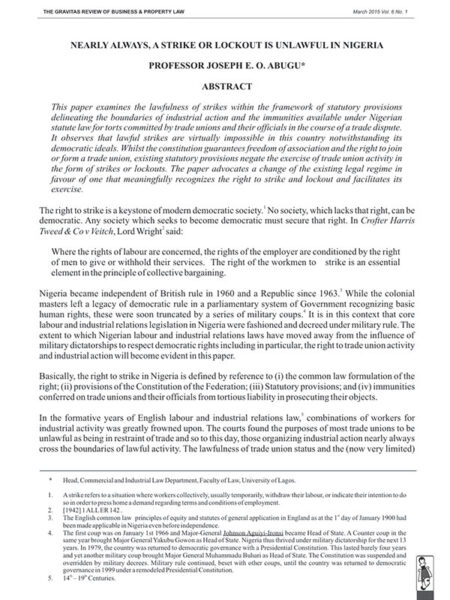


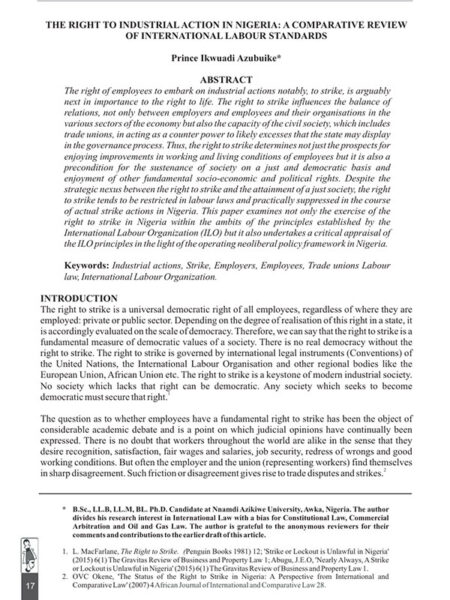
Reviews
There are no reviews yet.